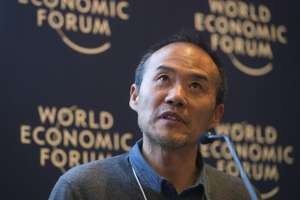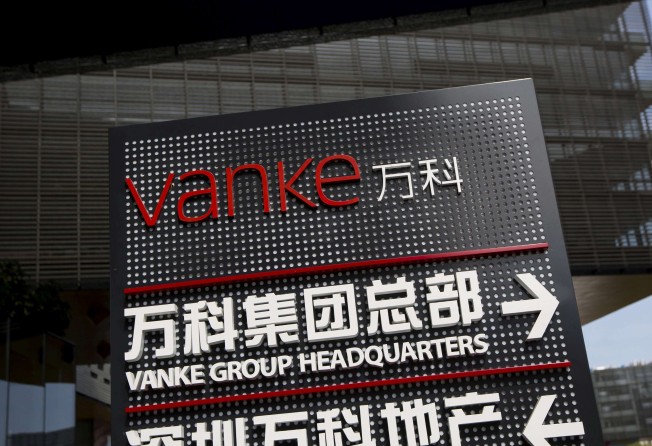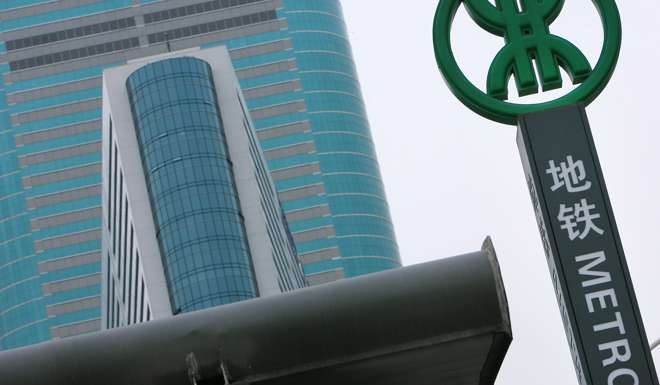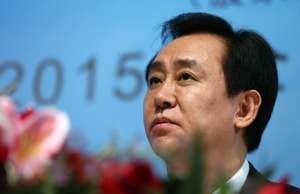
The five things you need to know about the battle of Vanke
In 2015, little was known about Baoneng Group or its owner Yao Zhenhua. Now he’s China’s fourth richest man after becoming embroiled in arguably China’s highest-ever profile takeover battles

1. What is China Vanke?
A 33-year-old Chinese property giant, headquartered in Shenzhen. Its controversial founder and chairman Wang Shi, is one of the most famous businessmen in China.

2. Why does its drawn-out takeover battle, riddled with twists and turns, matter?
No one ever expected the little-known insurance company Baoneng Group, run by now China’s fourth richest man Yao Zhenhua, to suddenly became Vanke’s largest shareholder last year, nor to challenge the management team of China’s best-run, and at that time biggest developer.
What looked like a very corporate affair to start with, increasingly triggered nationwide public debate. The developers’ shares, meanwhile, have been on a roller-coaster ride, and personal battles have broken out between Vanke’s founder Wang Shi, and other major shareholders. Additionally the case has caused the authorities to look at the funding of leverage buyouts, and the banning by insurance companies of investing in the stock market.
3. So who have been the main protagonists?

● Shenzhen Metro Group is a subway operator controlled by the Shenzhen government.
Vanke chairman Wang Shi originally planned to introduce Shenzhen Metro as a so-called “white knight” investor in a bid to dilute the shares of lead shareholder Baoneng Group. But the deal failed to gain support from major shareholders, including China Resources. The latter this week subsequently agreed to sell its entire share in Vanke to Shenzhen Metro. So Shenzhen Metro will own 15.3 per cent of Vanke once the deal is completed.
● Baoneng Group (which still own 25.4 per cent) was a low profile Shenzhen conglomerate until last year, covering real estate, microfinance, and most-crucially insurance. It tapped high leverage to buy into Vanke, and became the latter’s largest shareholder in December 2015. Its owner Yao Zhenhua has also now surged to fourth spot on China’s Rich List 2016 from 200th in 2015, after it made its investment in Vanke.
● China Resources Group a state-backed conglomerate and a long-term investor in Vanke. Baoneng replaced it to become Vanke’s largest shareholder in 2015. China Resources owned 15.3 per cent of Vanke until last week before agreeing to sell out to state-backed Shenzhen Metro Group.

● China Evergrande Group (which owns 14.07 per cent of Vanke), is a rival developer controlled by property tycoon Hui Ka-yan. It surprisingly joined the Vanke battle last year after snapping up nearly a 5 per cent stake and by November 2016 that had increased to 14.07, making it the third-largest shareholder, without making clear what its ultimate plans were towards the developer. It said on Friday it now “has no intention to acquire further Vanke’s shares” and mainland news site Caixin reported Evergrande plans to transfer its shares to Shenzhen Metro.
4. Who have been the eventual winners and losers?
Winner: Wang Shi and his Vanke management team, Shenzhen Metro
Reasons: Shenzhen Metro is set to become Vanke’s largest shareholder, after regulators stepped in, as they consider it as the best solution to solve the tussle between Baoneng and Evergrande, and bring Vanke ultimately under state control.
Loser: Baoneng and Evergrande
Reasons: The China Securities Regulatory Commission’s chairman Liu Shiyu last December unusually denounced companies that had used unauthorised funds to finance their leverage buyouts as “barbarians,” “robbers’ and “ghouls.”
The takeover battle also spurred the insurance regulator into action, which suspending the popular universal life product sold by Baoneng’s insurance unit, and banning a unit of Evergrande from investing in the stock market. Evergrande has already made paper loss for its increased recent investment in Vanke’s shares.
5. Outstanding Issues
● When and how Baoneng and Evergrande will sell off their shares? Baoneng’s 25 per cent stake is locked up until July 2017, while Evergrande’s shares are due in May 2017.
● Vanke’s board of 11 directors are up for re-election in March 2017, which should make for an interesting and potentially heated shareholder meeting.
And finally, a timeline on when and how it all played out ....
- 2015:
● July: Baoneng Group begins to raise its stake in China Vanke.
● December 4: Baoneng becomes Vanke’s largest shareholder after increasing its stake four times to 20.008 per cent.
● December 18: Trading in Vanke’s shares are suspended after chairman Wang Shi says the firm does not welcome the involvement of Baoneng , which by then had a 24.26 per cent stake.
- 2016:
● January 6: Trading in Vanke shares resume in Hong Kong, but its Shenzhen-traded shares remain suspended, pending an asset restructuring plan.
● March 13: Vanke seeks state-backed Shenzhen Metro Group to come in as a “white knight” to fend off Baoneng’s potential hostile takeover.
● June 17: Baoneng and China Resources Group, Vanke’s two largest shareholders reject the property developer’s proposal to introduce Shenzhen Metro, during a board meeting.
● June 26: Baoneng files a motion to remove all of Vanke’s board members, but is vetoed by the board
● July 4: Vanke’s shares in Shenzhen resume trading after having been suspended for seven months.
● July 19: Vanke says Baoneng has further increased its stake to 25.4 per cent.
● August 15: China Evergrande Group acquires 6.82 per cent of Vanke’s shares to become its third-largest shareholder.
● November 30: Evergrande further raises its stake to 14.07 per cent.
● December 3: The authorities begin to clamp down on leveraged buyouts in the stock market and sends inspection teams to the insurance units of both Evergrande and Baoneng to check if there are any non-compliance activities.
● December 5: The China Insurance Regulatory Commission suspends Baoneng’s unit Foresea Life Insurance from selling “universal life” products.
● December 9: Then the commission bans Evergrande Life, the insurance arm of Evergrande, from trading in stocks.
●December 17: Evergrande says it has no intention of taking control of its rival developer.
-2017:
● January 12: China Resources agreed to sell its entire stake (15.3 per cent) in Vanke to Shenzhen Metro
● January 13: Evergrande says it has no intention to further increase its Vanke holding and Baoneng says it welcomes Shenzhen Metro
● March: Vanke is set to re-elect all its 11 board directors after their three-year term expires.